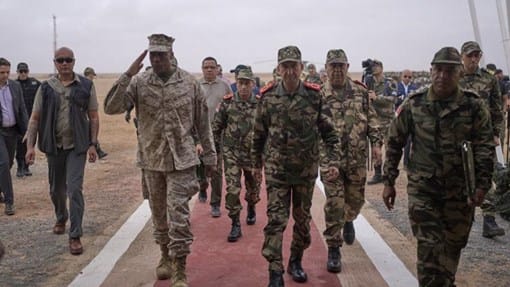The United States is signaling a recalibration of its military engagement in Africa, with its top general on the continent, Gen. Michael Langley, urging African partners to take greater responsibility for their own security during the conclusion of the African Lion 2025 military exercises.
Speaking on the final day of the joint training event that brought together troops from over 40 nations, Langley emphasized a new tone: capacity-building over dependency. “We need to be able to get our partners to the level of independent operations,” he told reporters, adding pointedly, “There needs to be some burden sharing.”
The shift in U.S. military posture moves away from a past focus on governance, counter-insurgency roots, and long-term state-building. Instead, it reflects a pragmatic approach centered on self-sufficiency, rapid response, and burden distribution among allies — in line with President Donald Trump’s defense priorities.
While the African Lion exercises included familiar air, land, and sea drills — from drone operations to satellite-guided rocket launches — the messaging this year departed from the holistic “3D” approach (defense, diplomacy, development) previously championed by U.S. Africa Command (AFRICOM).
Langley acknowledged that comprehensive strategies have yielded results in specific cases like Côte d’Ivoire, where development aid paired with defense has stabilized areas near jihadist hotspots. However, he admitted that overall trends across the continent show both “progression and regression.”
This revised doctrine comes amid a broader realignment of U.S. military resources. The Pentagon is evaluating reductions in leadership footprints in Africa while competitors like China and Russia are ramping up influence through training, infrastructure, and private military partnerships.
With Chinese training programs expanding and Russian mercenary networks becoming entrenched across North, West, and Central Africa, the U.S. is calling on regional allies to play a stronger operational role. “Our priority is protecting the homeland,” Langley stressed. “Other countries must contribute more to global stability.”
Langley, expected to step down later this year, leaves behind a command in transition — one moving from doctrine to discipline, and from partnership to performance.
As African militaries continue to navigate security crises, the message from Washington is clear: The era of prolonged dependency may be coming to an end.



